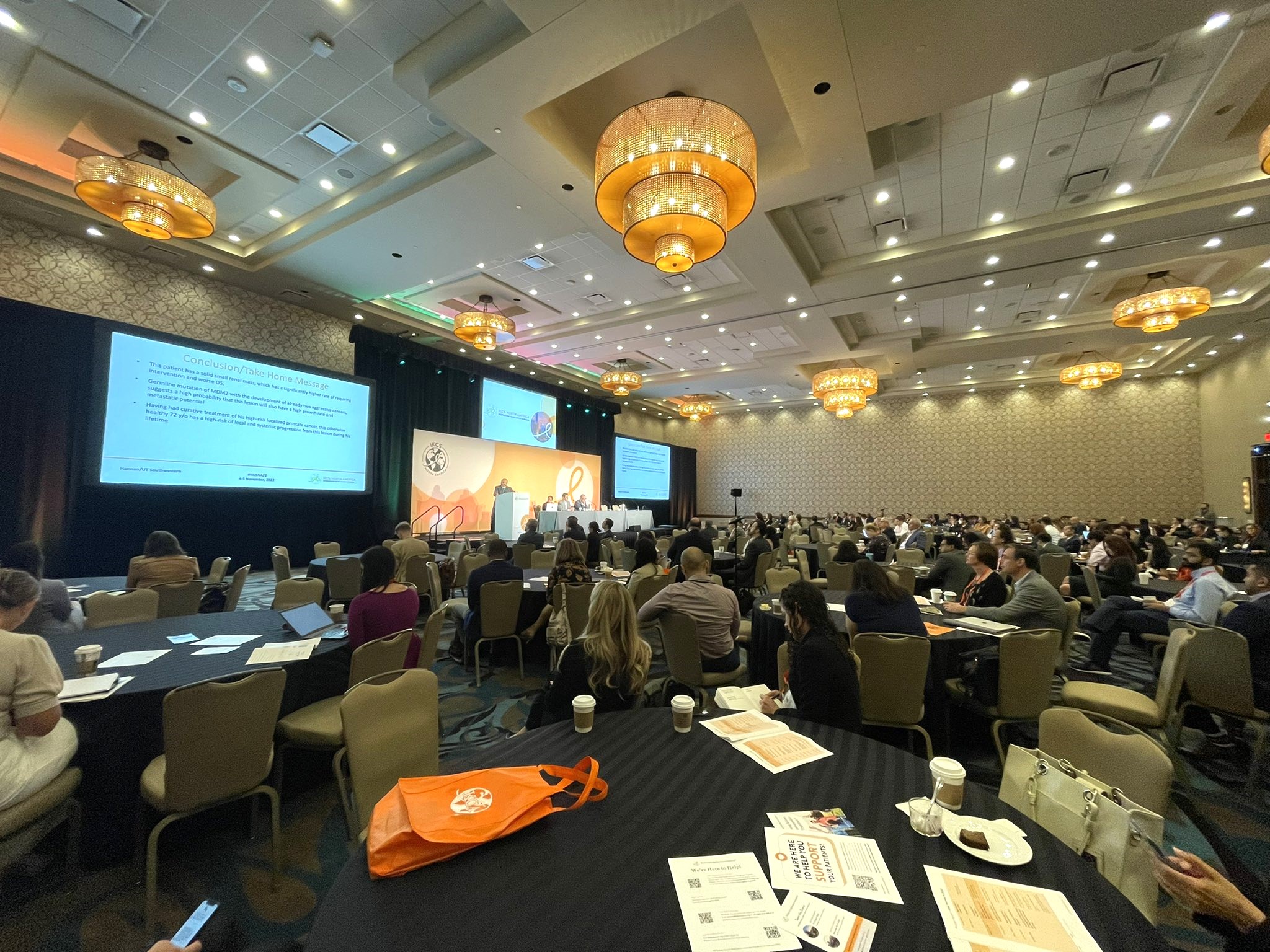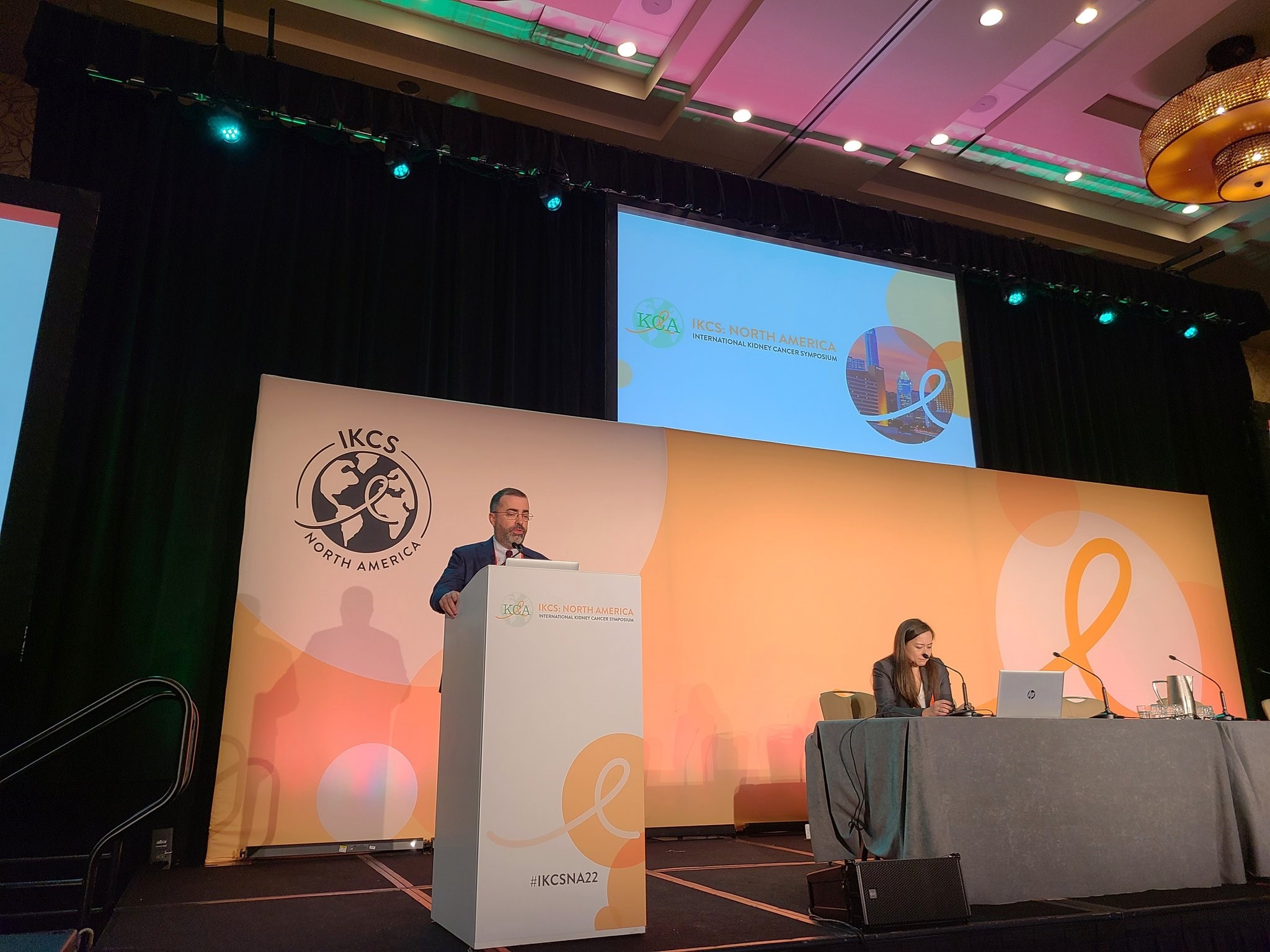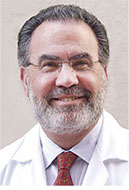https://doi.org/10.52733/KCJ20n4-e
IKCS 2022: Dissecting The Basis for the Adjuvant Therapy in
Renal Cell Carcinoma
Robert A. Figlin, MD, FACS
Cedars Cinai Cancer Center, Los Angeles, CA
Correspondence to: Email: robert.figlin@cshs.org
Dear Colleagues,
This year’s IKCS2022 Annual meeting offered a dynamic
agenda unveiling the latest scientific advances and pivotal
data from a broad spectrum of topics in kidney cancers,
including a significant amount of emerging data on renal
cell carcinoma. From early-phase clinical trials to updates
on novel therapeutics, the sessions offered a unique
opportunity to gauge progress on a broad spectrum of topics
and envision how new information could have translational
importance. The oral and poster presentations were worth
reviewing to get a sense of where investigative work will
point toward directions to be explored at future scientific
sessions. Altogether, oncologists and researchers gathered
at the IKCS meeting offered an intriguing picture of how
the field is evolving in many directions, from prognostic
factors, genetic analysis, stratification, genetic ancestry,
IO/immunotherapeutic strategies, depth of response, and
biomarkers. During this important discussion at the meeting,
investigators debated some hot topics including treatment
with adjuvant or without adjuvant therapy, doublet vs triplet
therapeutic strategies, and surveillance vs interventions in
renal cancers.



At this year’s IKCS2022 meeting, two newly established
awards were given by the Kidney Cancer Association.
Importantly, the inaugural “Kidney Cancer Association
Nicholas J. Vogelzang Humanitarian Award” was dedicated
and awarded to the KCA’s late co-founder, kidney cancer
trailblazer, and colleague, Dr. Nicholas J. Vogelzang, MD,
FACP, FASCO. The KCA will award this award annually at
the IKCS: North America meetings each November. This
KCA’s new humanitarian award recognizes an individual
who has made a great impact in highlighting kidney cancer
advocacy as well as strides to raise awareness and resources
to advance kidney cancer treatment and patient care.
Another award known as the Christopher G. Wood Rising
Star Award, established in memory of Dr. Christopher G.
Wood, to commemorate his commitment to the kidney
cancer community, was given to the early-career scientist or
physician within seven years of an initial faculty appointment
who embodies Chris’ spirit for community and collaboration.



The utility of adjuvant immunotherapy has been
associated with improved overall survival in patients with
RCC. Recently, pembrolizumab was approved by the FDA
for adjuvant setting in RCC with an intermediate-high or
high-risk of recurrence following nephrectomy or following
nephrectomy and resection of metastatic lesions based on results of the KEYNOTE-564 study (NCT03142334). Despite
the approval of pembrolizumab in the adjuvant setting,
additional questions remain regarding how to treat patients
who relapse on or soon after adjuvant therapy. Importantly,
there is an unmet need for the optimal treatment strategy for
patients with progression of disease on adjuvant therapy or
recurrence after completing adjuvant therapy. Also, precise
patient selection will be the key to influencing the benefit of
adjuvant treatment. The ensuing article in this issue by Berger
et al provides an algorithm for the treatment of recurrences in
patients with mRCC during or after adjuvant IO, based on the
pharmacokinetics/pharmacodynamics (PK/PD) of IO and the
efficacy and adverse events. For example, authors recommend
single-agent VEGFR TKI therapy for patients who progress
while on adjuvant ICI, and for patients with recurrence after
completing adjuvant pembrolizumab, authors recommend
resumption of ICI with either combination ICI and VEGFR
TKI, or dual ICI based on IMDC risk, time from completion of
therapy, and patient-specific factors. For patients who did not
tolerate adjuvant ICI, the severity of the irAE and time from
discontinuation of therapy influence the decision on (ICI with
VEGFR TKI versus single agent VEGFR TKI). In this issue,
Dr. Matrana provided in-depth coverage for oral and poster
abstracts presented at the IKCS2022. For the recommended
abstracts section in this issue, I have provided key abstracts
picked from the IKCS2022 sessions.










